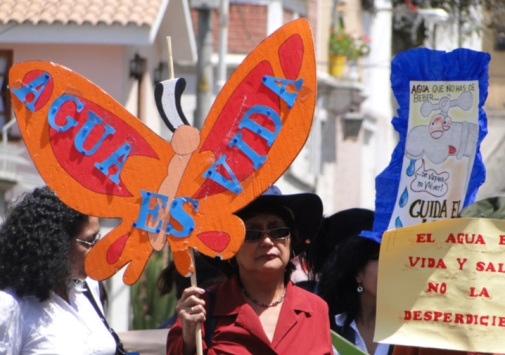PhD dissertation: "Water is life". An ethnography of urban ecology and water politics in Arequipa, Peru
PhD dissertation by Astrid Oberborbeck Andersen
The dissertation explores how people, materials, knowledge and politics are mobilised in complex ways to make water flow in a city where water scarcity is always potential.
It is an ethnographic inquiry into urban water, about how water participates and matters in the process of constant construction of a city in southern Peru. Framed as a study of urban ecology, the focus – rather than placed on a group of people - is spread out to take the urban waterscape as ethnographic object.
By approaching the city as ecology, this study is intended to contribute to anthropological understandings of life in contexts of changing environments, emphasising how social, political and environmental processes are entwined. The dissertation analyses the ways different kinds of collectives form around flows of water in Arequipa, by following water and people within the urban waterscape: farmers who cultivate fields within the city and rely on water for irrigation; urban newcomers who build their own neighbourhoods on the outskirts of the city and use water for everyday use; engineers who work with the management of water, and who work in state institutions that implement the earlier mentioned water law.
The analysis links material, discursive and institutional processes in the analysis of human environmental relations. One central aim of this dissertation is to examine analytical idioms for conceptualising and engaging with water in urban ecologies. Keywords: urban ecology, water politics, climate change, materiality, human-environmental relations
The doctoral research for this dissertation formed part of two research projects:
- From Ice to Stone. Climate Change, Water Scarcity and Conflict Solution in Peruvian Andes.
- Waterworlds. Natural Environmental Disasters and Social Resilience in Anthropological Perspective.

‘Water is Life’
In Peru, a country of enormous social and economic inequalities, the statement ‘water is life’ veils a tension between the ways different people define wellbeing and aspire to progress and future life. The dissertation suggests that the many conflicts currently unfolding in Peru, related to water, territory and resources, can be seen in the light of the tension inherent in ‘Water Is Life’.
